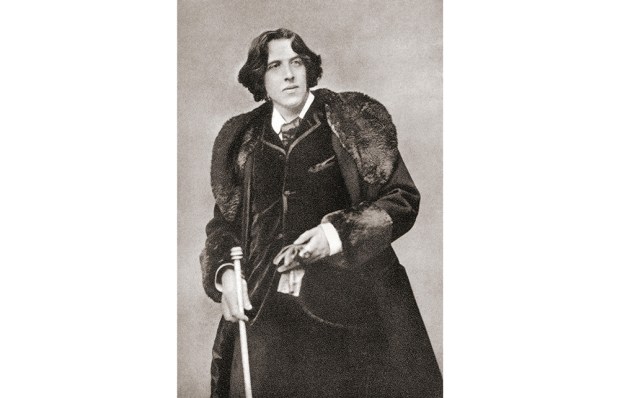One day someone is going to have to write the definitive study of Wikipedia’s influence on letters. What, after all, are we supposed to make of all these wikinovels? I mean novels that leap from subject to subject, anecdote to anecdote, so that the reader feels as though they are toppling like Alice down a particularly erudite Wikipedia rabbit-hole.
The trouble with writing such a book, in an age of ready internet access, and particularly Wikipedia, is that, however effortless your erudition, no one is any longer going to be particularly impressed by it.
We can all be our own Don DeLillo now; our own W.G. Sebald. The model for this kind of literary escapade might not even be literary at all; does anyone here remember James Burke’s Connections, a 1978 BBC TV series which took an interdisciplinary approach to the history of science and invention and demonstrated how various discoveries, scientific achievements and historical world events were builtfrom one another successively in an interconnected way?
And did anyone notice how I ripped the last 32 words from the show’s Wikipedia entry? All right, I’m sneering, and I should make clear from the off that When We Cease to Understand the World is a chilling, gripping, intelligent, deeply humane book. It’s about the limits of human knowledge, and the not-so-very-pleasant premises on which physical reality seems to be built. Benjamin Labatut,a Chilean born in Rotterdam in 1980, writes in Spanish. Adrian Nathan West — himself a cracking essayist — fashioned this spiky, acute English translation.
The book consists, in the main, of four broadly biographical essays. The chemist Fritz Haber finds an industrial means of fixing nitrogen, enabling the revolution in food supply that sustains our world, while also pioneering modern chemical warfare. Karl Schwarzchild imagines the terrible uber-darkness at the heart of a black hole, dies in a toxic first world war and ushers in a thermonuclear second. Alexander Grothendieck is the first of a line of post-war mathematician-paranoiacs convinced they’ve uncovered a universal principle too terrible to discuss in public (and after Oppenheimer, really, who can blame them?). In the longest essay-cum-story, Erwin Schrödinger and Werner Heisenberg slug it out for dominance in a field — quantum physics — increasingly consumed by uncertainty and (as Labatut would have it) dread.
The problem here — if problem it is — is that no connection, in this book of artfully arranged connections, is more than a keypress away from the internet-savvy reader. Wikipedia, 20 years old next year, really has changed our approach to knowledge. There’s nothing aristocratic about erudition now. It is neither a sign of privilege, nor (and this is more disconcerting) is it necessarily a sign of industry. Erudition has become a register, like irony, like sarcasm, like melancholy. It’s become not the fruit of reading, but a way of perceiving the world.
Literary attempts to harness this great power are sometimes laughable. But this has always been the case for literary innovation. Look at the gothic novel. Fifty-odd years before the peerless masterpiece that is Mary Shelley’s Frankensteinwe got Horace Walpole’s The Castle of Otranto, which is jolly silly.
Now, a couple of hundred years after Frankenstein was published, When We Cease to Understand the Worlddutifully repeats the rumours (almost certainly put about by the local tourist industry) that the alchemist Johann Conrad Dippel, born outside Darmstadt in the original Burg Frankenstein in 1673, wielded an uncanny literary influence over our Mary. This is one of several dozen anecdotes which Labatut marshals to drive home the message that There Are Things In This World That We Are Not Supposed to Know. It’s artfully done, and chilling in its conviction. Modish, too, in the way it interlaces fact and fiction.
It’s also laughable, and for a couple of reasons. First, it seems a bit cheap of Labatut to treat all science and mathematics as one thing. If you want to build a book around the idea of humanity’s hubris, you can’t just point your finger at ‘boffins’.
The other problem is Labatut’s mixing of fact and fiction. He’s not out to cozen us. But here and there I was disconcerted enough to check his facts — and where else but on Wikipedia? I’m not saying Labatut used Wikipedia. (His bibliography lists a handful of third-tier sources including, I was amused to see, W.G. Sebald.) Nor am I saying that using Wikipedia is a bad thing.
I think, though, that we’re going to have to abandon our reflexive admiration for erudition. It’s always been desperately easy to fake (John Fowles). And today, thanks in large part to Wikipedia, it’s not beyond the wit of most of us to actually acquire.
All right, Benjamin, you’re erudite. We get it. What else you got?
Got something to add? Join the discussion and comment below.
Get 10 issues for just $10
Subscribe to The Spectator Australia today for the next 10 magazine issues, plus full online access, for just $10.
You might disagree with half of it, but you’ll enjoy reading all of it. Try your first month for free, then just $2 a week for the remainder of your first year.














Comments
Don't miss out
Join the conversation with other Spectator Australia readers. Subscribe to leave a comment.
SUBSCRIBEAlready a subscriber? Log in